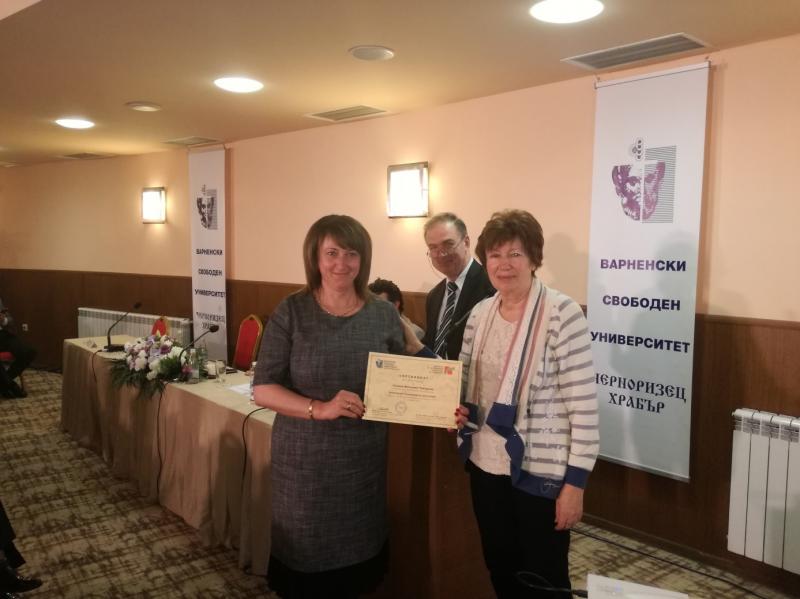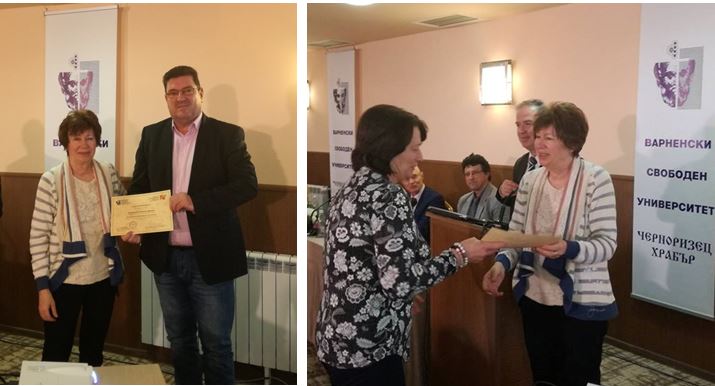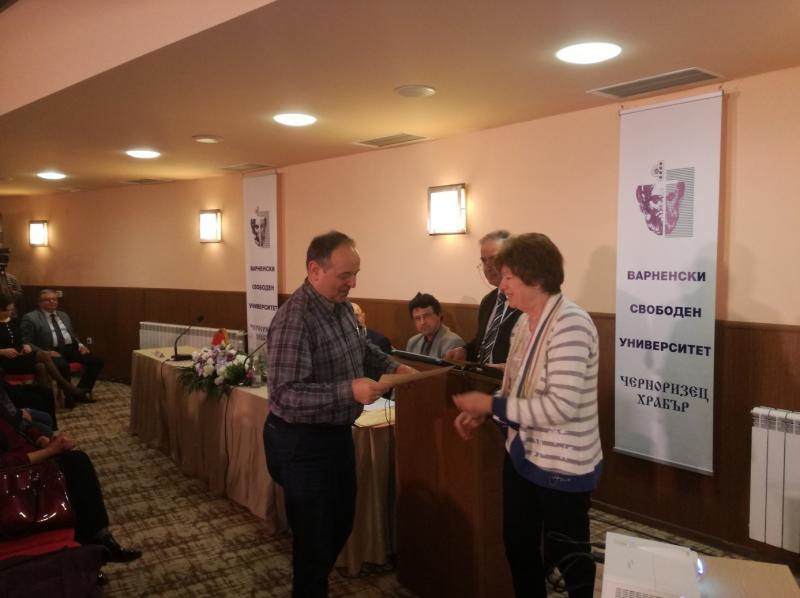The Integrated Waste Management Forum launched an initiative to create an innovative master's degree programme in Circular Economy
The President of Varna Free University Prof. Anna Nedyalkova, D.Sc., the Minister for the Environment and Water Neno Dimov, Ivelina Vasileva - Chairperson of the Parliamentary Commission on Environment and Water, the Deputy Regional Governor Andriyan Petrov and the Director of the Smolyan Branch of VFU "Chernorizets Hrabar", Anelia Parzhnova, PhD opened training in Integrated Waste Management.
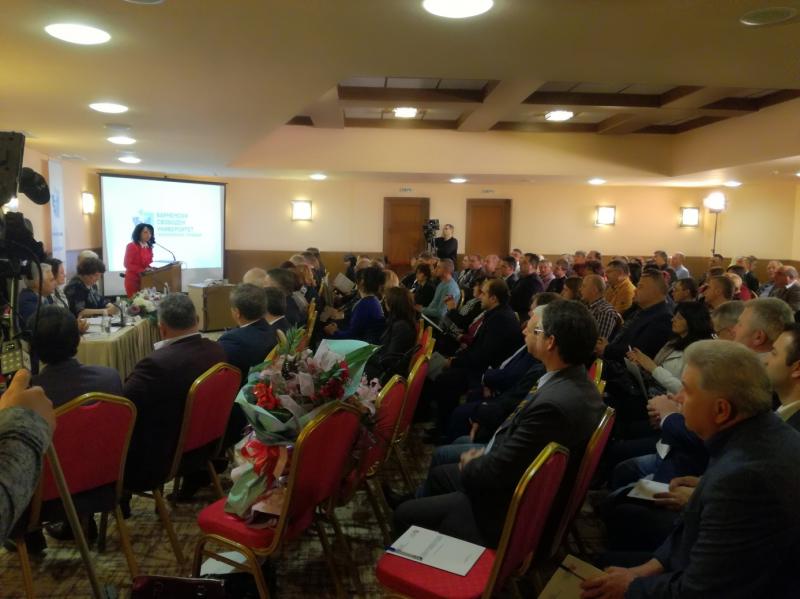
The training is part of the programme of the Institute for Integrated Management of Municipalities, established at Varna Free University "Chernorizets Hrabar" with the mission to contribute to the sustainable and intelligent development of the municipalities by preparing staff for their management, developing research, entrepreneurship and innovation in compliance with the Smart City concept.
More than 100 representatives of the local government and business from 27 municipalities from Smolyan, Plovdiv, Pazardzhik, Kardzhali, Burgas and Sofia regions took part in it.
In her address to the participants, the President of Varna Free University Prof. Anna Nedyalkova, D.Sc. said that the great interest in the forum was due both to the usefulness of the previous events, organized in partnership with the municipalities, and to the exceptional system and organization of the team of the Smolyan Branch.
She emphasized that the forum is an expression of Varna Free University's strategy - the institutes that it creates have to be close to the problems of society and to comment on key issues related to the improvement of the quality of life in the municipalities.
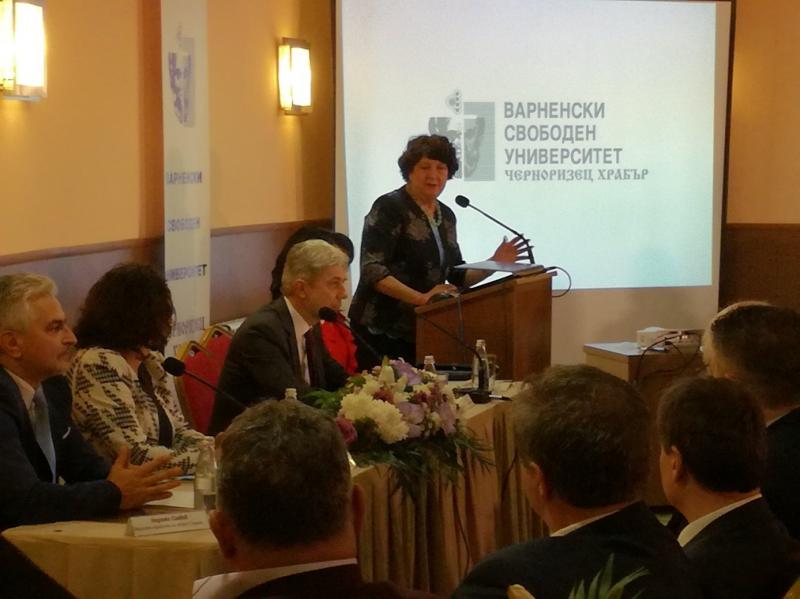
"Our ambition as a university is to create a new educational model, above all on demand, to form new competences and skills that are essential for the second decade of the 21st century. It is this question of integrated waste management that involves solving all the other issues as well as skills and competencies for higher creativity and entrepreneurship, "said Professor Nedyalkova.
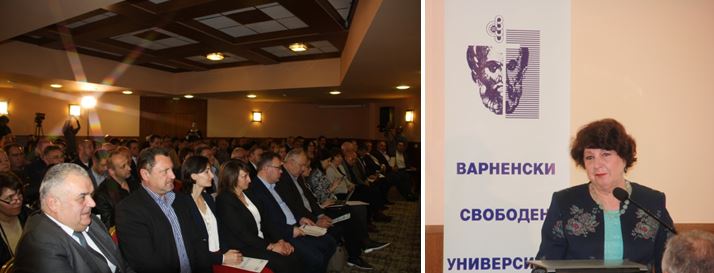
She said that the purpose of the seminar was to provide an opportunity for discussing the European perspective, the national legislative framework and the views and opinions of the local authorities, to hear the good practices and problems of the municipalities, as well as their new ideas on the subject.
Minister Neno Dimov, who was a lecturer on the subject of "Circular Economy", thanked for the implementation of the forum and said that universities should take the example of the initiative of Varna Free University because the scientific community is the one that should give impetus and be the engine of progress.
In his lecture he outlined the importance of the balance between the economic and environmental development, as it is the European framework providing for the countries in the Union to work to minimize waste in the coming years.
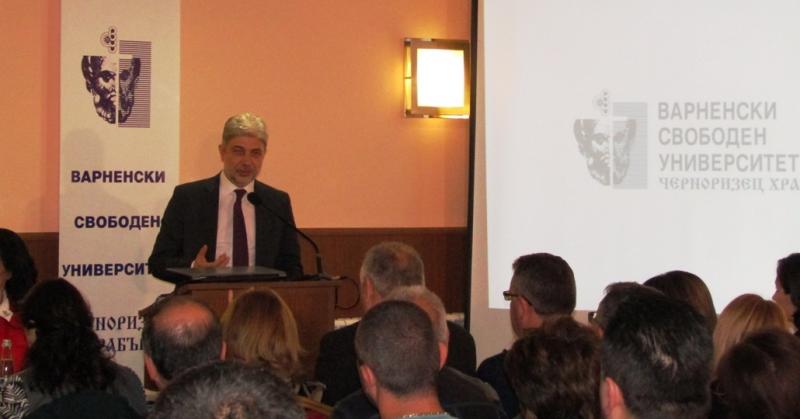
"Circular economy is a system where the resource and waste input is minimized through sustainable design, maintenance, repair, reuse, reconstruction, and closing of recycling cycles. We now think linearly - raw material, production, product, use, waste. It is very difficult to get out of the stereotype, we think linearly in this sequence, but we must try to re-think our mindset in cyclic recurrence," Dimov pointed out, outlining what is set out in the European directives. In his words, the economy will not suffer job cuts because of the new policy for it will open them in repairs and maintenance rather than in production.

"One of the many key resources is water, and we think about it in a linear way. Europe's water scarcity is on the rise. We must think how it can be reused, because it is not an endless resource. If we do not switch there to a circular economy, we will have a shortage; we will have problems in economy, quality of life, health. The use of plastics is another example. Life without plastic is unthinkable; plastic is also a terrible waste," said Dimov.
Ms. Ivelina Vasileva, Chairpersonof the Parliamentary Committee on the Environment and Waters, defined the forum as a good platform for exchanging ideas and good practices.
Accent in her presentation was the national environmental legislation and the changes in the Local Taxes and Fees Act.
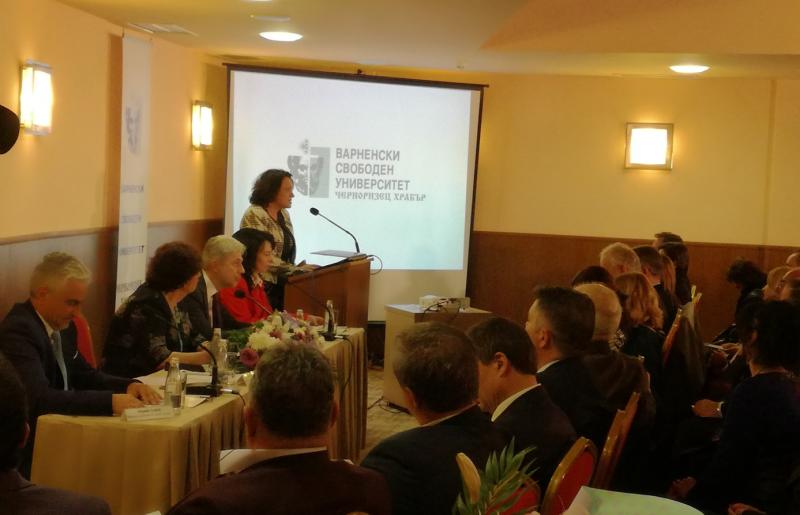
"By introducing the novelty in the law, in practice, municipalities and system users are allowed to move to separate waste collection and reduce the amount of landfilled waste, that is, the steps towards the circular economy. I think that the municipalities through NAMRB are seriously involved in the development of the specific ordinance that will come into force and in which the methodology for the waste tax will be set. Moving towards the new model is the fair way and we must prevent the system from shaking, " said Vasileva. She pointed out that Bulgaria has something to boast and these are the environmental measures.
"Over the past 5 years there has been an increase in waste recycling in the country and a steady increase in the amount of recycled packaging waste - 287,000 tonnes in 2016. Bulgaria achieves the European recycling targets for plastics and they are above the EU average. We are also among the first EU Member States to adopt regulation and measures to limit plastic bags in 2011 by introducing product charges. And we think we are among the pioneers and leaders in Europe. At one of the top three locations, we are in the EU on the efficiency of recycling lead-acid batteries. What we can say is that Bulgaria is working hard in waste management and in recent years we have achieved a lot, " said Vasileva.
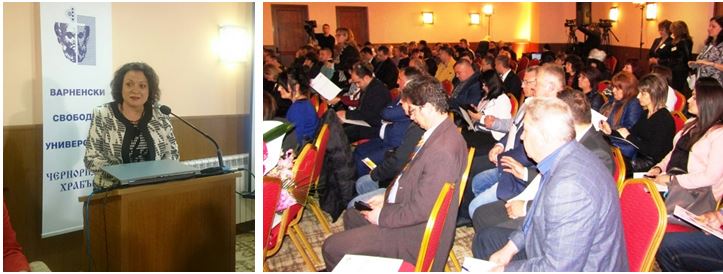
She announced that during the Bulgarian EU presidency in April, the legislative changes discussed in the package of directives are expected to be adopted in relation to the circular economy and then within two years they should be transposed into our national legislation.
"The Waste Management Act stipulates requirements for the household waste a total of 50% to be pre-treated and for the construction waste – 70 % until 2020. The new legislation sets targets for household waste recycling from 55% in 2025 and 65% in 2035. There is a possibility for Bulgaria to introduce a five-year delay because it is one of the Member States that in 2013 has deposited more than 60% of its household waste, then our landfilled waste was over 70%," said Vasileva.
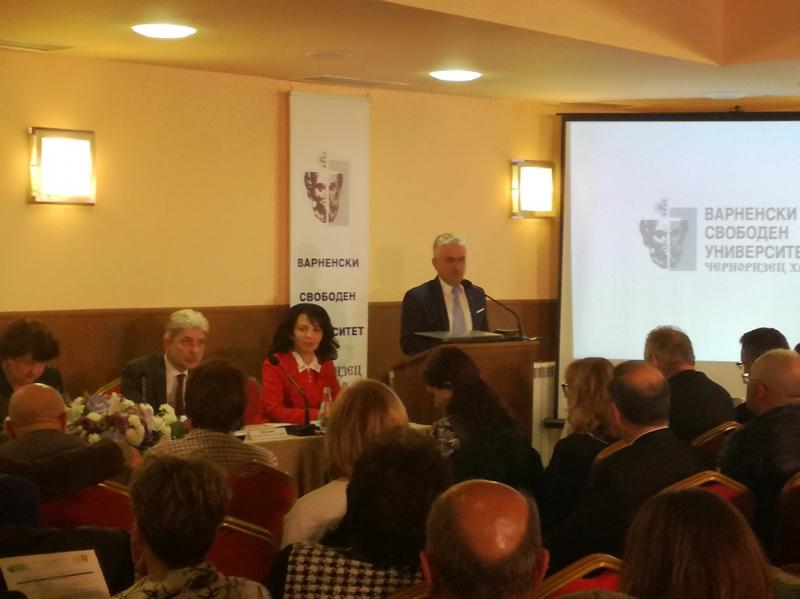
The Deputy Regional Governor Andriyan Petrov welcomed on behalf of the Regional Governor Nedyalko Slavov and on his behalf the lecturers, the organizers, the participants and the guests of the Forum in the magnetic Rhodope Mountains. He gave special thanks to the President of Varna Free University Prof. Anna Nedyalkova, D.Sc. and the University's academic staff for the friendly relations and good cooperation, for the professional path they have been going on for years for the benefit of the academic community and the development of higher education in the region.
In connection with the subject of education, Petrov said: "We, the Regional Governor and the administration, every day, ask ourselves what we will leave the world behind us. Whether we are doing our best to provide future generations with a better place to live with. That is why it is important in such forums to generate ideas that lead to the implementation of policies to reduce the negative impact, to keep our nature clean, to maintain the ecological balance."
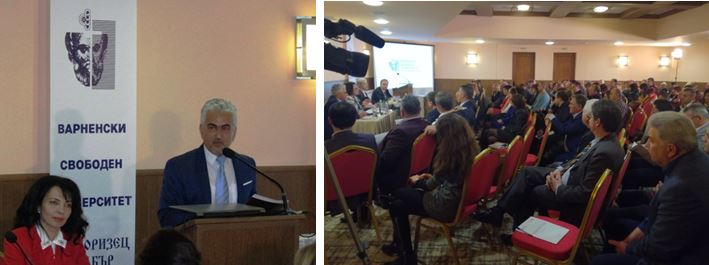
He noted that the Regional Governor welcomes the policies that VFU seek to realize. He also expressed special thanks to the mayors who are implementing successful integrated waste management projects and projects in the settlements. In conclusion, the Deputy Regional Governor wished success and fruitful work to the forum and again thanked minister Dimov and Ivelina Vasileva for the accepted invitation to participate and to give their professional expertise.
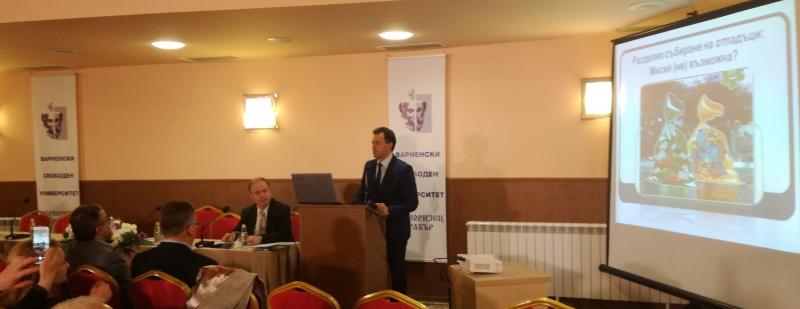
265 mayors manage up to 90% of the waste in Bulgaria, commented the Mayor of Zlatograd Miroslav Yanchev - lecturer on the topic of "Separate Waste Collection - the Mission (not Possible)?"
"There must be intolerance to everyone who neglects environmental protection, and education is very important in the waste management process." Separate waste collection is a mission and therefore it is possible, says the Mayor of Zlatograd.
Waste management in the municipality of Zlatograd follows the logic of the Waste Management Act. The goals set by the municipality are building and maintaining an integrated waste management system and a socially acceptable mechanism for determining the "municipal waste" tax, Yanchev commented.
On the first day of the seminar, the mayors of the municipalities of Karnobat, Sozopol, Rudozem and Devin, - the Mayor of the Municipality of Asenovgrad also took part.
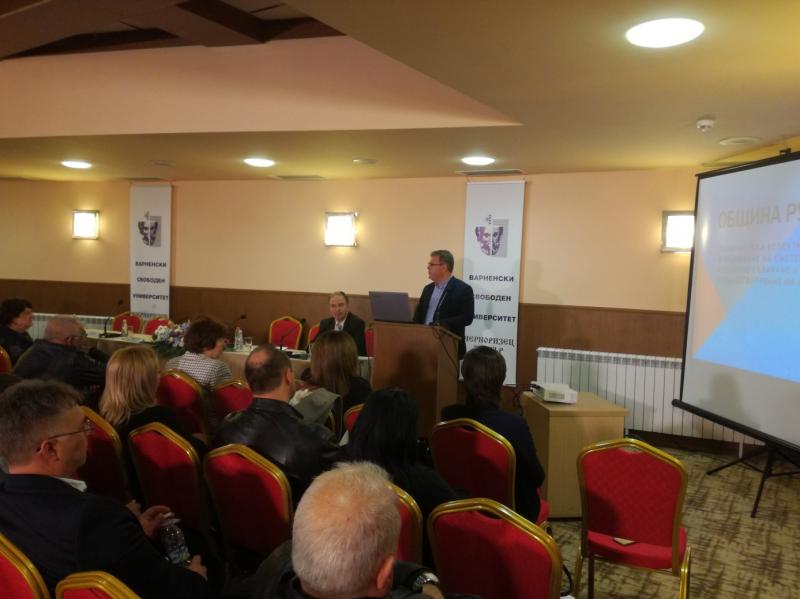
The of Mayor of Rudozem Rumen Pehlivanov, who is also a lecturer in the forum, proposed that part of the funds from the tax-free packet be allocated to the municipalities that introduce separate waste collection systems. "This way we will not be wondering how to secure the separate collection. I am convinced that we will be better than companies in introducing separate waste collection with the introduction of our own separate collection system for the municipality. We know there are business lobbies, but the public interest should be the predominant," Pehlivanov said.
In the "Good Practices" series, the Mayor of the Municipality of Rudozem - Rumen Pehlivanov presented the practical aspects of introducing a separate waste collection system. A project for the introduction of the separate waste collection system started on the territory of the municipality of Rudozem in 2016. According to the Mayor Rumen Pehlivanov his team has gained experience, not always in the easy way, but it has allowed them to be more precise in the planning.

The rapid filling of the cells in the landfills for solid household waste - a problem raised by the participants in the discussion at the end of the first part of the training, was also highlighted in the presentation of the Mayor of the Municipality of Rudozem.
As a reply to the previous speaker, MrPehlivanov confirmed his conviction that separate waste collection is a "mission possible".
Krassimir Daskalov, the Mayor of Devin, said in turn his proposal for a garbage fee to be formed still in the price of the products in the shops. According to the Mayor of Karnobat, Georgi Dimitrov, there is money for ecology, but they will never be enough, and before the legislation is changed, investment should be made in recycling, composting and waste separation systems.
On the second day of the training, Georges Kremlis, Head of the Environmental Impact Assessment and Cohesion Policy Unit, the Commission's Directorate General Environment presented the European directives on waste management as well as the challenges and opportunities for municipalities and the state.
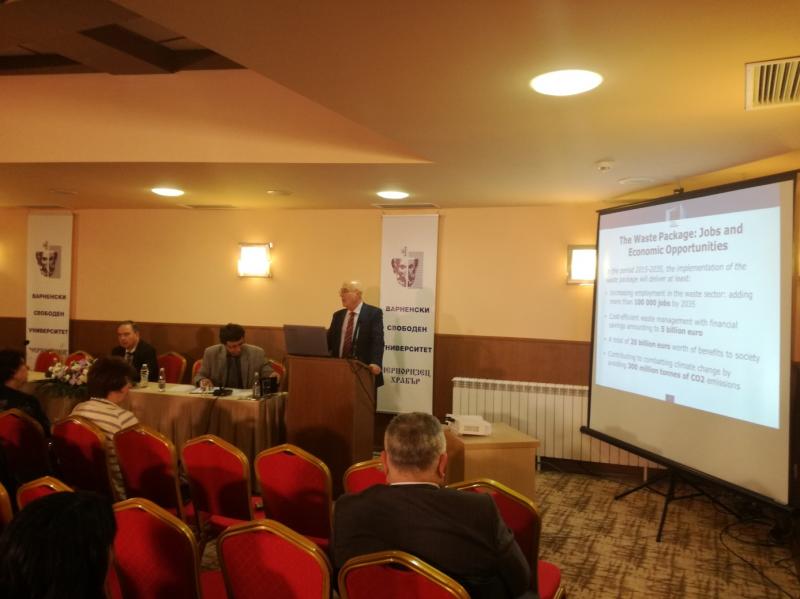
He urged the municipalities to strengthen separate collection, especially bio-waste. Bulgaria needs more separate collection to achieve a 50% separate waste collection target by 2030, as the separate collection is now less than 20%. One option is to increase landfill fees, as more than 80% of the waste is currently being landfilled, and when the fees increase, people will look for ways to reduce their waste. Otherwise, this is a vicious circle, "commented Georges Kremlis.

The ideal objective pursued by the European Union is 96.7% recycled waste. The calculations now show that one person per day delivers 1 kilogram and 200 grams of waste, and 450 kilos per year, and in the big cities this amount is larger. The European Union's ideal goal with the measures to be adopted, is to reduce the landfilled waste per person per year to 10 kilograms.
The Director of the Balkan Scientific and Educational Centre for Ecology and Environmental Protection, Prof. Eng. Ivan Dombabol, PhD presented the opportunities for the waste to become an alternative raw material and energy resource.
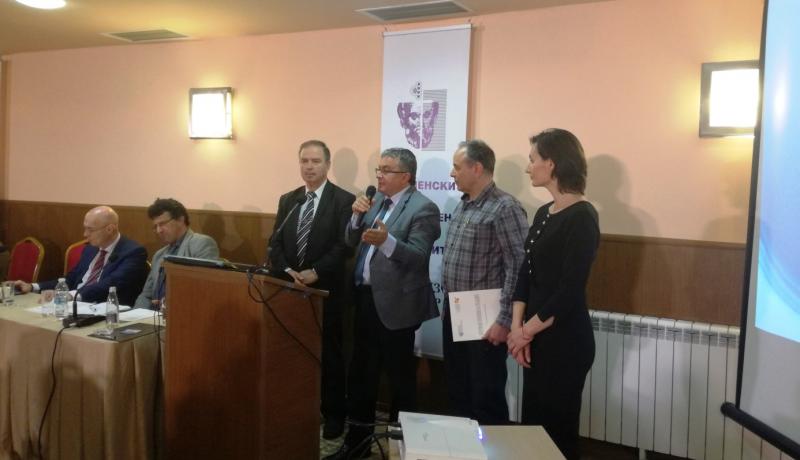
Representatives of the Municipality of Parvomay presented good practices in the field of waste management. The Mayor of the Municipality Angel Papazov commented on the role of the public as a key factor and presented the successful interaction with the Municipalities of Asenovgrad and Kuklen.
The Mayor of Kuklen Maria Belcheva thanked Varna Free University for the usefulness of the forum.
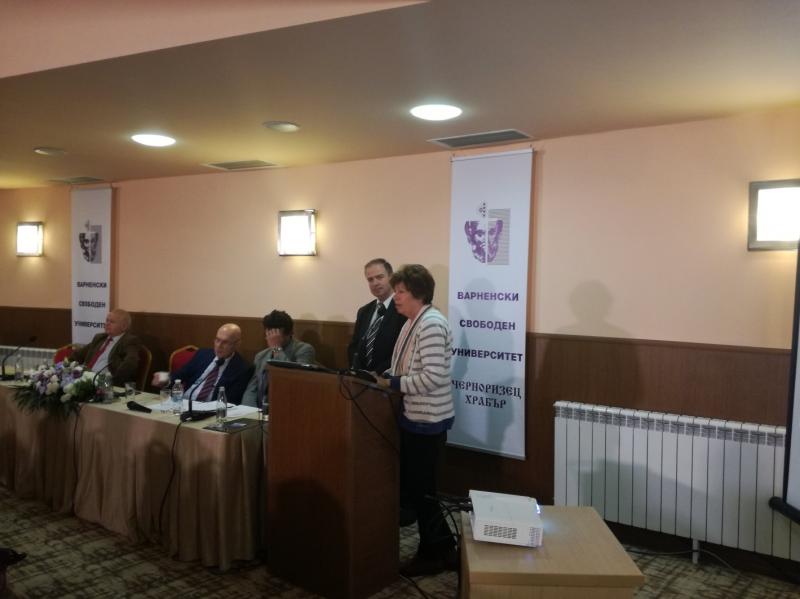
The problem is complicated, but the problems have solutions and the solutionsare found with knowledge, commented Prof. Galya Gercheva, D.Sc. at the end of the second seminar day. She also presented the idea of the new master's degree programme in Circular Economy generated by the problems presented within the forum.
Where is the place of education in the process of implementing the directives and creating new jobs - with this question Prof. Anna Nedyalkova, D.Sc.opened the discussion.
Georges Kremlis answered the question by pointing out the important role of the education in these processes and welcomed the initiative to create the new master's degree programme.
He commented that more than 100,000 jobs would probably be created – going out from the micro-level related to a direct workforce in the field of separate collection and treatment of waste, at a macro level - in the field of research, eco-innovation, business.
The forum surpassed our expectations, not only because of the exceptional interest and representativeness, but also because of the initiative to create this innovative master's degree programme, said the President of Varna Free University, Prof. Anna Nedyalkova, D.Sc.
At the end of the event, all participants received certificates.
